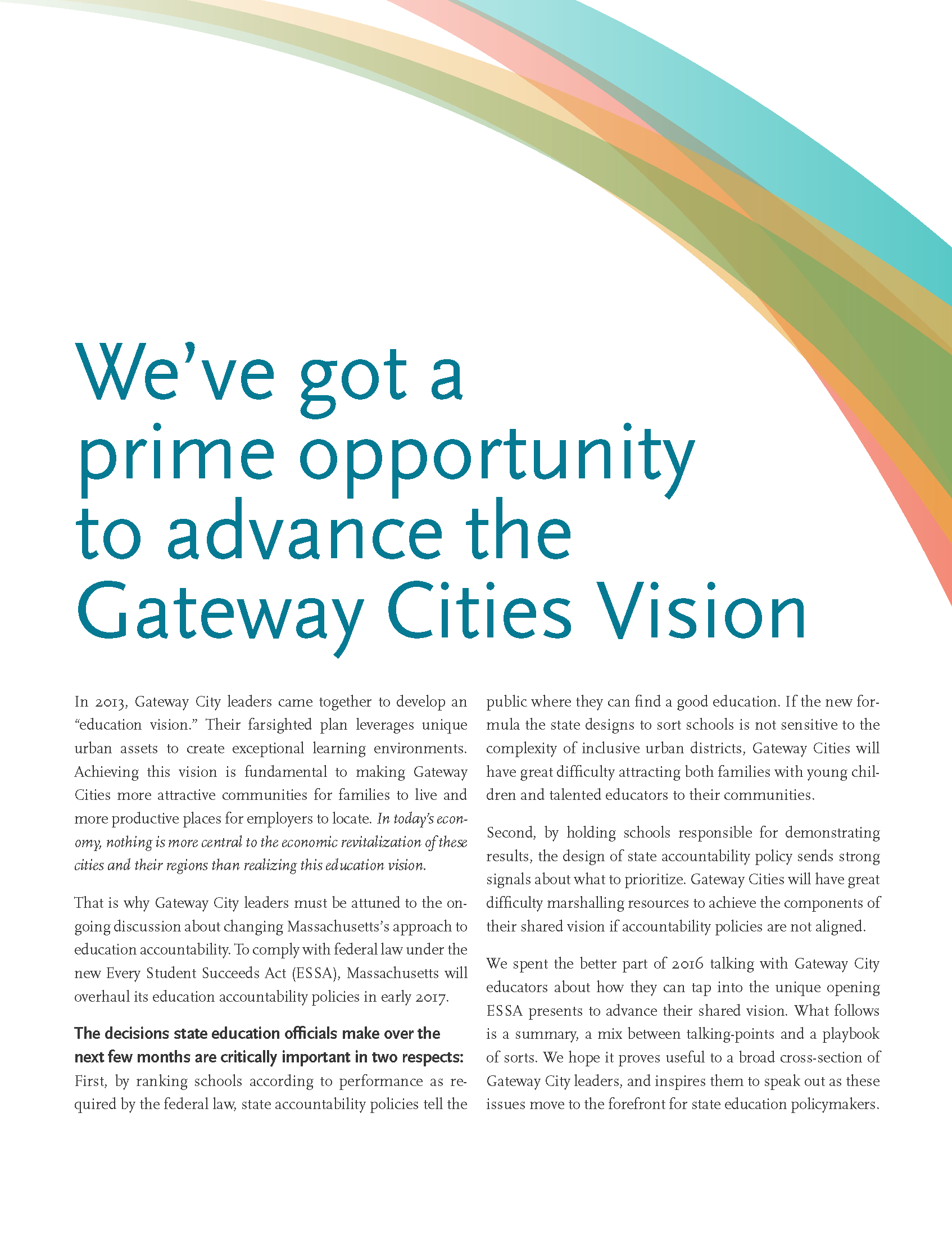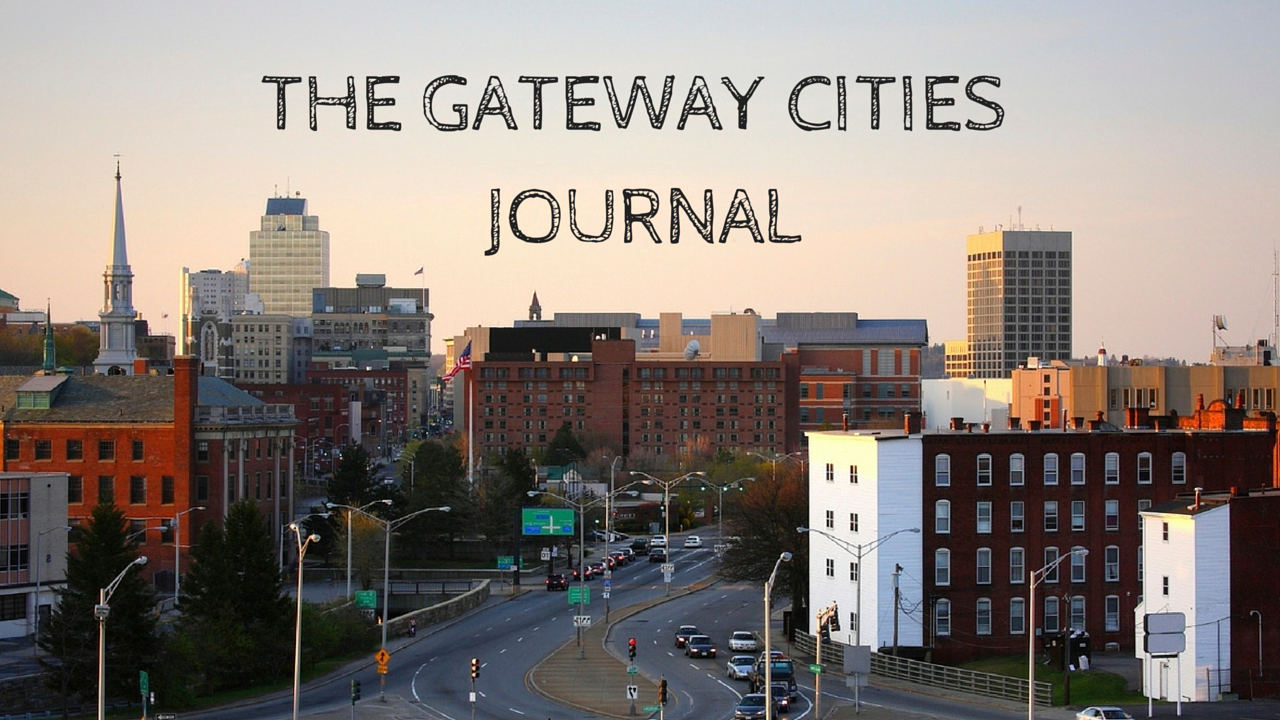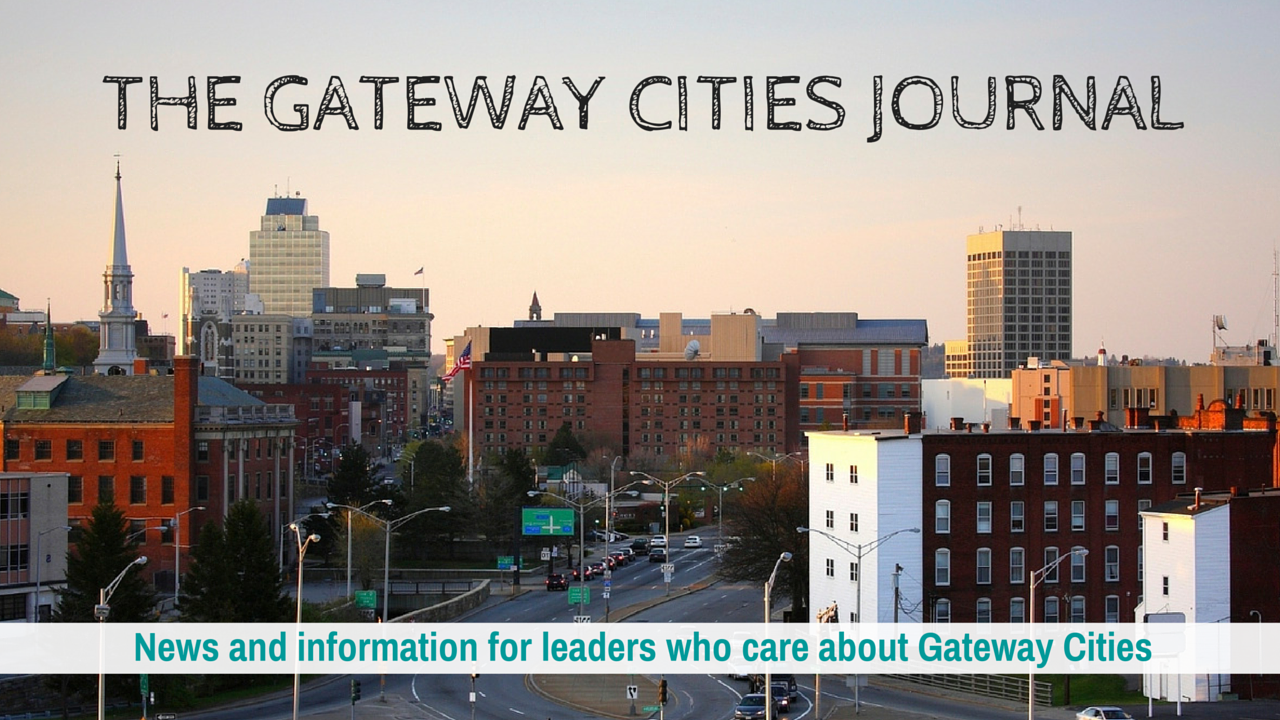We head to Worcester this week for the first of six community dialogues on education accountability. Over the next few months, Massachusetts will revise its accountability policies to comply with the Every Student Succeeds Act (ESSA), a major overhaul of federal education law signed by President Obama last December.
President Obama last December.
Anticipating this change, we spent a lot of time in 2016 speaking with Gateway City educators about lessons-learned over the past decade, a period in which Gateway City school districts faced increased pressure from state and federal education accountability polices.
We heard loud and clear that education accountability has done a lot of good for Gateway Cities, but we also learned that Gateway City leaders see significant room for improvement.
This is actually great news. If we act on this opportunity to make accountability better, educators believe Gateway City schools will be positioned to make another great leap forward, improving teaching and learning so that all students gain the complete set of skills necessary to succeed in life.
To get a better feel for the wide opening educators see, I strongly encourage you to watch the 30-minute presentation David Ruff, Director of the Great Schools Partnership, gave last month at our annual Gateway Cities Summit in Springfield. David is a leading thinker on how we design assessment and accountability so that all students in our inclusive urban schools thrive. His talk provides inspiration and direction as we think about the potential for change under ESSA.
It’s fitting that we begin this urgent conversation in Worcester. In 2013, Gateway City leaders came together in Worcester to develop a shared education vision. Four years later, this farsighted plan is still the best economic revitalization strategy that we have for these key cities and their regions.
To outline the promise ESSA implementation holds for advancing the Gateway Cities Vision in more detail, we’ve prepared a short primer. Please join us at one of our upcoming community conversations to talk through these ideas.
– Ben Forman
Housing and Economic Development
UMass Memorial Hospital moves another 250 employees to downtown Worcester, bringing the total number of employees working in Mercantile Center to over 1,800. Andproperty values are up more than $1 billion, the largest single-year increase in more than a decade.
A proposed $100 million development in Chelsea prompts some residents to dream big.
Sal Lupoli is planning to build an 8-12 story office/housing/retail building in Haverhill.
MGM Springfield touts diversity in its hiring.
Springfields’s chief development officer lists $3.3 billion in ongoing and recent projects at a meeting with business leaders.
The latest issue of MassBenchmarks features findings from MassINC’s Rebuilding Renewal study.
Aaron Wren offers his thoughts on how we help cities when the macroeconomic fundamentals aren’t in their favor in Governing.
Economic Development Quarterly presents more evidence that film tax credits are a big waste of money.
Education
Tim Murray says it is time to invest in vocational schools.
Worcester is exploring pushing back school start times, but the cost is significant.
Pittsfield Public Schools launch an advertising campaign saying choice is good, and urging residents to choose the city’s schools.
The debate continues on the location of a new Lowell High School
Attleboro school system takes the first step in its strategic plan to increase experiential learning by sending middle school students to Rome and Athens, and high school students to Washington D.C. for the presidential inauguration.
After five months on the job, Barnstable Schools Superintendent Meg Mayo-Brown praises local commitment to education.
Creative Placemaking
Pittsfield‘s local artists team up with the Office of Cultural Development to launch three pop-up galleries for the holiday season.
Native Salem artist Ruben Urbiera gives back to community with murals that bridge cultural divides.
The Lynn Shelter Association is using photography to combat homelessness in an exhibit housed at the Tiger’s Den café.
Next City explores the big business of place marketing.
Governance
With the cost of health insurance for Haverhill employees rising 18 percent, which translates into a $3 million increase, the city is joining the state’s Group Insurance Commission.
Lowellian Mary Burns is appointed by Gov. Baker to UMASS Lowell Board of Trustees.

